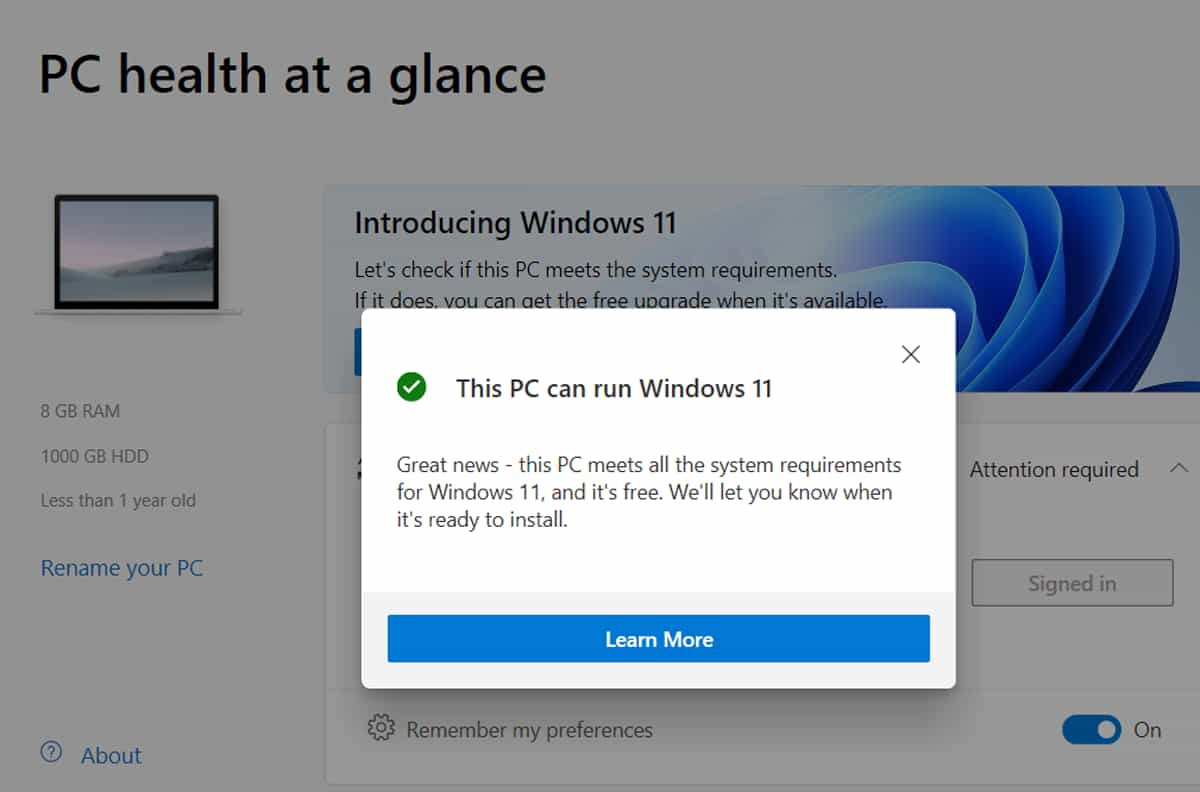
Microsoft then released an update to the PC Health Check app that provided slightly more detail but still fell short of the expectations of Windows users. Related: When Can I Install Windows 11? Am I Eligible to Upgrade to Windows 11? Your Questions Answered. Microsoft's Windows 11 eligibility checking app first returned a series of incorrect compatibility checks, along with a message that said Yes or No (in so many words). Microsoft's PC Health Check app came in for some rightful criticism after the Windows 11 launch event. Check Your Windows 11 Upgrade Status with WhyNotWin11 If a device clears the hard floor but doesn't match the soft floor requirements, Microsoft will state that an "upgrade is not advised.That's where the WhyNotWin11 app steps in, delivering much more information about your system's Windows 11 compatibility and where it might be falling short.

Furthermore, there is a hard floor and soft floor to the Windows 11 upgrade process. The minimal requirements for Windows 11 are higher than for Windows 10, meaning some user's existing hardware won't handle the upgrade. What Is the Windows 11 Hard Floor and Soft Floor? The long and short of it is that Windows 11 CPU support is currently decent but not extensive.

AMD Ryzen 3000 to Ryzen 5000 series CPUs are broadly supported, along with select Threadripper, EPYC, and Athlon processors. It is a similar situation for AMD hardware. But, at the time of writing, Windows 11 support extends from 8 th Gen Intel Core to 11 th Gen Intel Core CPUs, along with select Celeron, Pentium, and Xeon processors. I'm not going to list every supported CPU for obvious reasons. Microsoft has released its currently supported Intel and AMD processors. The type of CPU in your computer will also dictate whether you can upgrade to Windows 11 or not.


 0 kommentar(er)
0 kommentar(er)
